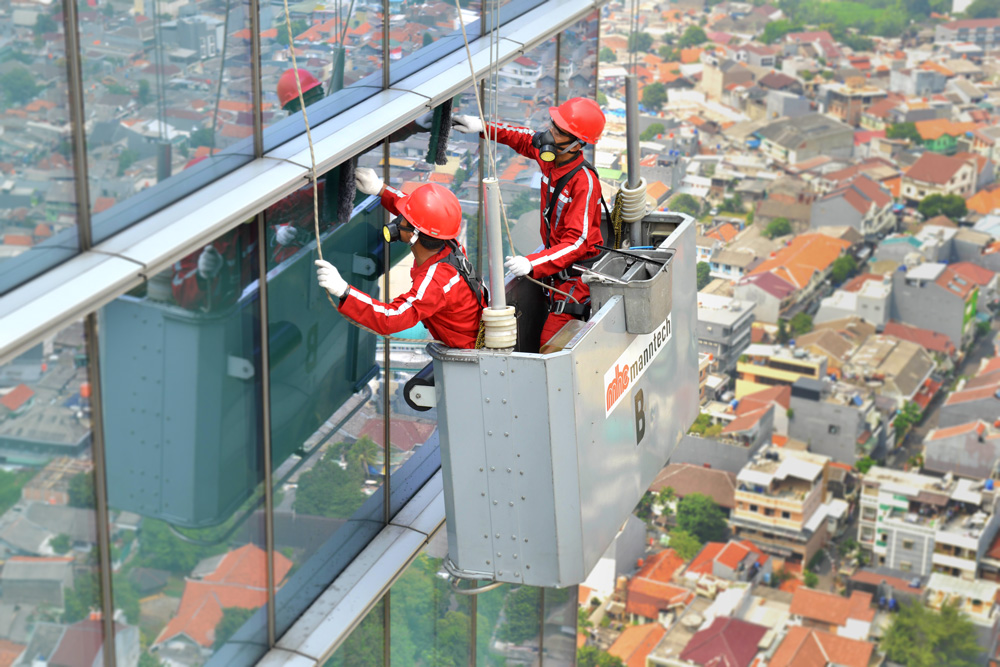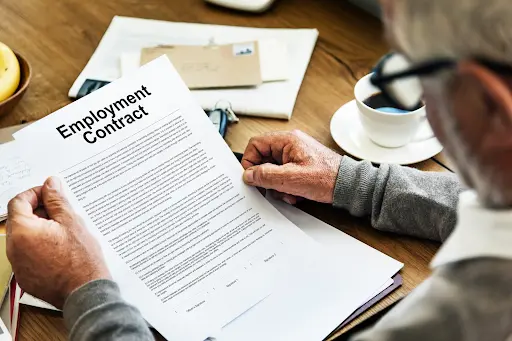Understanding what Occupational Health and Safety (OHS) laws apply in Indonesia is essential for every business owner and manager. In today’s ever-evolving work environment, OHS-related challenges are becoming more complex. By staying informed about current OHS regulations, companies can minimize accidents, protect their human resources, and ensure operations remain legally compliant.
So, what are the key OHS laws in Indonesia? Read on to find out more:
What Are the OHS Laws?
In Indonesia, workplace health and safety is governed by several legal regulations that serve as guidelines for both employers and employees. Here are 10 important OHS-related regulations every company should understand:
1. Law No. 1 of 1970 on Work Safety
Law Number 1 of 1970 serves as the legal foundation for implementing Occupational Health and Safety (OHS) in Indonesia. This law mandates that every company must provide a safe working environment for its employees.
Under this regulation, workplace safety includes protection against accidents, occupational diseases, and control of hazardous materials. The law also requires the provision of Personal Protective Equipment (PPE), safety training, and regular inspections of workplace facilities.
For companies, compliance with this law is not only a legal obligation but also a long-term investment in creating a productive and low-risk working environment.
2. Ministerial Regulation No. 4 of 1987
This regulation requires companies to establish a Workplace Health and Safety Committee (P2K3), composed of management and employee representatives. The committee designs safety programs, conducts internal audits, and educates employees on safety protocols.
P2K3 ensures that safety policies are implemented systematically, not just as a formality.
Read Also: 3 Outsourcing Work Systems and How to Manage Them
3. Law No. 23 of 1992 on Health
While this law focuses broadly on health, it mandates companies to conduct regular medical checkups for employees. This is especially vital for workers exposed to chemicals, dust, or high-pressure environments. Company doctors are also expected to offer professional health recommendations.
4. Law No. 3 of 1992 on Worker Social Security (amended to Law No. 40 of 2004 on National Social Security System)
This law ensures comprehensive worker protection, including work accident insurance. Companies must enroll employees in BPJS Employment programs that offer medical coverage, disability benefits, and death compensation.
Companies must register their workers with BPJS Employment to ensure access to medical care, compensation, and death benefits.
5. Presidential Decree No. 22 of 1993
This decree lists recognized occupational diseases such as silicosis, work-related tuberculosis, and chemical-related respiratory issues. It plays a key role in insurance claims, compensation, and medical decisions in the workplace.
Read Also Understanding Wage Protection for Outsourced Workers
6. Ministerial Regulation No. 5 of 1996
This regulation mandates companies with over 100 employees or high-risk operations to implement SMK3. It covers safety planning, program execution, monitoring, and corrective actions, forming a structured framework for risk management.
7. Law No. 13 of 2003 on Manpower
Article 86 affirms every worker’s right to protection of safety, health, morality, and decency. This law expands the scope of OHS to include psychological well-being and workplace comfort.
8. Government Regulation No. 50 of 2012
As a technical guide to implementing SMK3, this regulation outlines certification standards, audit procedures, and performance evaluations. It enables companies to earn official SMK3 certification, proving compliance with national standards.
9. Presidential Regulation No. 7 of 2019
This regulation updates the list of occupational diseases by including mental health issues such as work-related stress and digital fatigue. It highlights the government’s commitment to protecting workers from invisible dangers like mental exhaustion or depression.
10. Ministerial Regulation No. 5 of 2018
Focused on workplace hazard control, this regulation requires periodic environmental assessments—covering lighting, noise, ventilation, temperature, and chemical exposure. Companies must provide protective equipment and training accordingly.
Is It Mandatory to Implement OHS Procedures?
The answer is: absolutely yes. Referring to Law No. 1 of 1970 on Work Safety, every workplace—whether a factory, office, construction project, or hospital—is legally obligated to implement occupational safety procedures. The definition of “workplace” in this law covers all types of locations where labor activities occur, whether permanent or temporary.
OHS compliance is mandatory for all types of workplaces that involve potential hazards—ranging from exposure to chemicals, heavy machinery, high-pressure work environments, to psychosocial risks such as excessive workload.
For companies, implementing OHS procedures comprehensively goes beyond fulfilling legal obligations. It helps foster a positive and safe work environment, boosts employee loyalty, and significantly reduces the risk of workplace accidents or legal claims.
That concludes the comprehensive explanation of what OHS laws apply in Indonesia. Ensuring full OHS implementation not only demonstrates legal compliance, but also reflects a company’s commitment to employee well-being and long-term business sustainability.
However, if your company lacks the internal resources to manage this effectively, partnering with SOS—a trusted manpower provider—can be a strategic solution to ensure your operations continue to meet applicable OHS standards.
Fulfill Your OHS Commitment with Quality Workforce Solutions from SOS
If your company wants to stay focused on core business operations, leave your workforce management to SOS—a licensed and experienced manpower provider compliant with the latest labor regulations. SOS offers reliable and skilled workers across various sectors, from administration and logistics to security and technical operations—all meeting high industry standards.
As a trusted outsourcing vendor, SOS ensures that all deployed personnel go through strict recruitment processes, so you can count on getting top-quality talent.
So what are you waiting for? Secure the right workforce that supports OHS compliance in your company today!
Contact SOS via WhatsApp now to ensure your business runs safely, smoothly, and in full compliance with workplace safety regulations!





